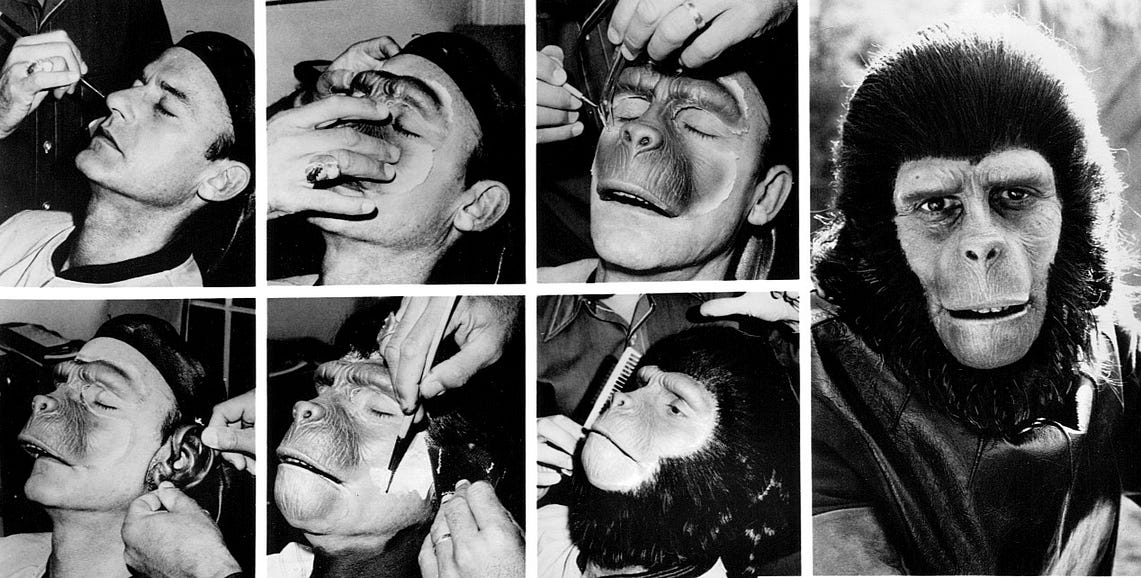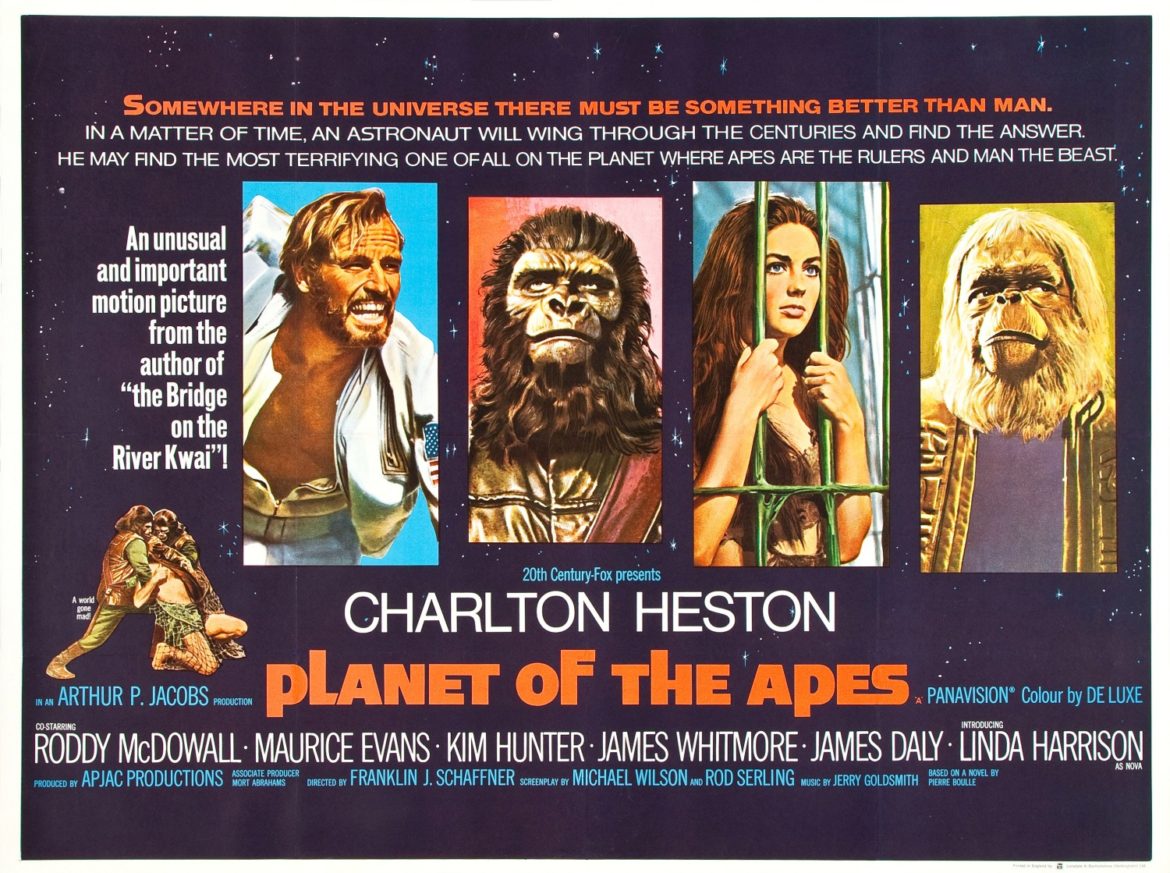‘Planet of the Apes’ is often considered to be one of the top films of all time and with good reason.
Plot Summary
The plot, in brief, is that somewhere in our distant future, a spaceship with three passengers lands on an unknown planet. The human inhabitants of this planet are not as sophisticated as their distant genealogical cousins from the spaceship: on this world, the apes have evolved to be the more intelligent race, ruling the planet and treating the humans precisely the way, well, the way humans have treated animals for thousands of years.
Special Effects
Technically speaking, the movie was a landmark in the history of film making. Producer Arthur Jacobs created an alternate world and civilization which was both believable and on-budget.
The movie was the Avatar of its time. It may not have had the glitz and glamour of today’s 3D technology, but remember it was 1968. And the release of Star Wars, mother of all sci-fi movies, was still a decade away.
Compared to current generation space-age movies, the action is highly localized: no shots of massive space ships; no intergalactic flight scenes. Most of the outdoor shooting was done in US National Parks, largely in the deserts of Utah and Arizona. Indoor scenes were shot on what I can now only call tacky studio sets.
The main achievement of the movie was in the area of prosthetics/makeup. The technique would lay the foundation for generations of film to come, including Star Wars and Lord Of The Rings. With good reason, Planet of the Apes won an Academy Award for its outstanding makeup.

Review
Special effects and beautiful locales aside, Planet of Apes is a crucial commentary on the human race, society, and power structures of the era in which it was produced.
Out of the three men that landed on the planet, only the captain survives a raid by the apes and is imprisoned. As the only man they have ever encountered who is capable of communication, he becomes the subject of intense scrutiny, is feared, and treated as a threat.
The movie illuminates the evolution of civilization, government, and religion from multiple angles. Though we are inclined to empathize with the humans, it makes us question our own structures and logic, social themes that are still relevant today. The irony of Humanity’s fate, revealed in the last scene, powerfully underlines the film’s message.
For more on Movies & TV, go here



4 comments
I did watch this and all the subsequent versions of Planet of Apes. I agree that it portrays the irony of what-if situation for humans with a strong message but somehow I’ve lost all interest in following this series now. Did you watch the 2011 version of this film?
I have seen the Planet of the Apes (2011) and it was very very good. I think I will review i soon. I am not very keen on seeing the following versions of the 1968 movie, you know what they say about too much of a good thing right?
The sequels to the original PLANET OF THE APES were inferior to it and really didn’t need to be made — except for the studio to milk it for more money. That the 1968 movie remains quite watchable today is a testament to its status as a classic motion picture. It has been and remains a “Must See.”
This was indeed nice and especially the climax was pretty scary. Some of the concepts in the movie are quite unbelievable though. Especially, the humans losing all intelligence. On another planet, it would be believable but not on earth. In any case, it was truly enjoyable and is a must watch.